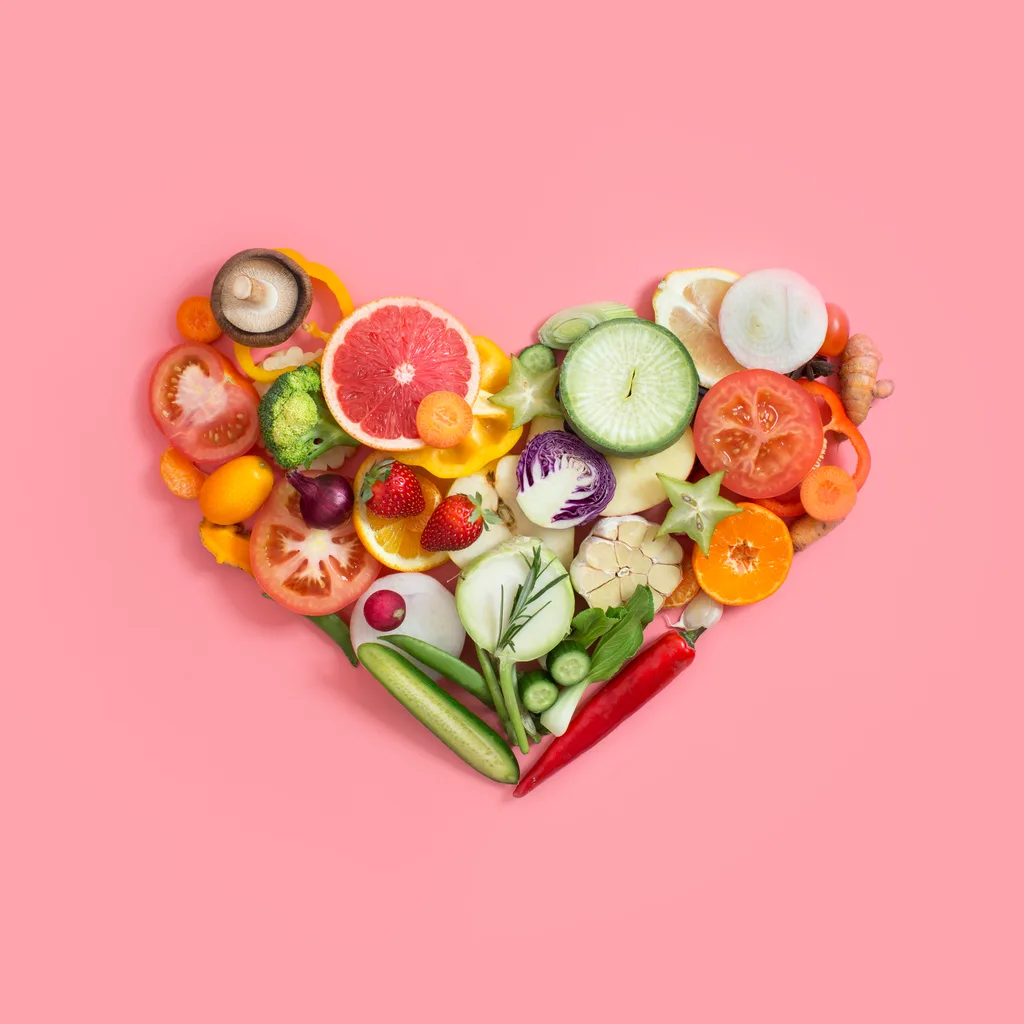There are any number of reasons to try to eat a healthy diet – fitness, healthy longevity, better mental health, energy levels, skin and hair health… But one of the most important is that it’s good for your heart.
“Lifestyle choices, including the food and drink we put into our body, can have an impact on several heart-disease risk factors, including blood pressure, cholesterol levels, excess weight (especially around the middle) and diabetes risk,” says dietitian and nutrition scientist Dr Joanna McMillan.
Essentially, the guidance is that we should all eat a variety of wholefoods, while reducing our intake of ultra-processed foods. But, with so many mixed messages (especially when it comes to dietary fat), it’s not surprising that many of us still have questions.
Here, Dr Joanna cuts through the myths!

A top dietitian has revealed the best diet tips for maximising your heart health
(Credit: Getty)Is a low-fat diet best for heart health?
Dr Joanna says this is one of the biggest myths she encounters. “We now know that, while a low-fat diet can be an option for some people, for most of us, including good fats from wholefoods is beneficial for weight control and heart health,” she explains.
What are heart-healthy fats?
Fats can be broadly categorised as saturated, monounsaturated and polyunsaturated. In general, replacing saturated fats with unsaturated fats can help improve blood-cholesterol profiles. There are some exceptions, for example, dairy foods contain high levels of saturated fats, but only butter raises cholesterol, whereas yoghurt, cheese and milk all have a neutral effect because of the food matrix of nutrients they contain.
Dark chocolate is another lovely example, thankfully! A group of polyunsaturated fats called the omega-3s are particularly beneficial as they have an anti-inflammatory effect and can help reduce blood triglycerides – another heart-disease risk factor.

Dr Joanna is busting the myth that all fats are bad for your heart: “For most of us, including good fats from wholefoods is beneficial for weight control and heart health”
(Credit: Getty)What about cholesterol?
While trans fats and saturated fats are bad for us, dietary cholesterol is fine for most people. “Dietary cholesterol has little, if any, effect on blood-cholesterol levels,” Dr Joanna explains. Some
of these foods can even be healthy. Which brings us to…
Are eggs good?
“Eggs are a great addition to most people’s diets because they provide a range of heart-healthy nutrients,” Dr Joanna explains. “Firstly, eggs are a bioavailable source of lutein and zeaxanthin. These are dietary carotenoids with antioxidant and anti-inflammatory properties.
“Secondly, eggs are a source of long-chain omega-3 fats, which have been associated with heart-health benefits. Medical professionals often recommend eating oily fish for omega-3 fats, but eggs provide some omega-3s too!
“Thirdly, eggs are relatively low in saturated fat, especially when compared to some other animal products. The majority of fats in eggs are healthy unsaturated fats, including monounsaturated and polyunsaturated fat.”
WATCH BELOW Jesinta Franklin’s postpartum recovery diet
Should I still be eating meat?
Dr Joanna says you don’t have to eat 100 per cent plant-based foods to follow a heart-healthy diet. Whether you’re a vegan, vegetarian or omnivore, it’s food quality that matters.
“Animal foods of good quality have excellent nutritional attributes and contribute to overall physical and mental health,” Dr Joanna says.
“The important thing is that what-ever diet we follow – from vegan to omnivore – we can all benefit from eating more wholefoods, and that includes plant foods.”

While we can all benefit from more plant and whole foods, Dr Joanna says a heart healthy diet can still include meat.
(Credit: Getty)What changes can I make for a healthy heart?
“If you focus on eating wholefoods and cutting out ultra-processed foods, you are on your way to a heart-healthy diet,” Dr Joanna says.
“Include plenty of fibre and antioxidant-rich plant foods. If you’re happy to eat animal products, these offer valuable nutrition. Eggs, lean meats, seafood and dairy are all nutrition-rich additions.”
Are there foods I should avoid?
“Eating fewer ultra-processed foods is the key to moving towards a heart-healthy diet,” Dr Joanna advises.
“Ultra-processed foods are those that are made with already highly processed ingredients. This results in them providing high amounts of kilojoules but lower levels of nutrients – as well as a loss of fibre. These ultra-processed items are also the foods where we find the worst kinds of fats, trans fats, too much added sugar and other undesirable additives.”










